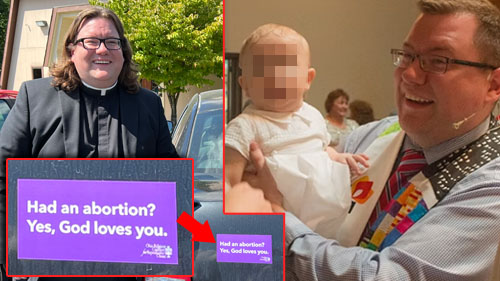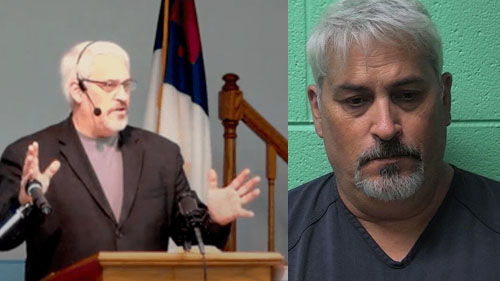| Recent Featured Videos and Articles | Eastern “Orthodoxy” Refuted | How To Avoid Sin | The Antichrist Identified! | What Fake Christians Get Wrong About Ephesians | Why So Many Can't Believe | “Magicians” Prove A Spiritual World Exists | Amazing Evidence For God | News Links |
| Vatican II “Catholic” Church Exposed | Steps To Convert | Outside The Church There Is No Salvation | E-Exchanges | The Holy Rosary | Padre Pio | Traditional Catholic Issues And Groups | Help Save Souls: Donate |  |









 " />
" /> " />
" /> " />
" /> " />
" /> " />
" />




Senate Bill Threatens Section 230 And Online Free Speech
A bipartisan push in the US Senate is targeting the foundation of online free expression, with Senators Dick Durbin and Lindsey Graham proposing legislation that would effectively put an expiration date on Section 230 of the Communications Decency Act; a law widely credited with enabling the modern internet. If passed, the bill would cause Section 230 to lapse on January 1, 2027, unless Congress enacts a replacement.
The move is being touted as a way to force tech companies into negotiating new rules, but it’s a dangerous game of brinkmanship that risks gutting a core legal protection without a clear, workable alternative in place. Section 230 currently shields platforms from liability for content posted by users, allowing them to host a wide range of speech without being held legally responsible for every comment, post, or video.
Though framed as a bipartisan initiative, the motivations behind the bill are far from aligned. Democratic supporters such as Durbin and Senator Amy Klobuchar seek tighter content moderation and greater accountability for platforms spreading “harmful” or “misleading” speech.
Conversely, Republican proponents including Senators Josh Hawley and Marsha Blackburn — who have both demonstrated limited digital literacy — argue that Section 230 enables political bias and censorship. They seek to limit platforms’ ability to remove or moderate content they disagree with.
Despite these opposing aims, the bill is gaining momentum. Senators Sheldon Whitehouse, Richard Blumenthal, and Peter Welch have joined as co-sponsors, further blurring the lines between those aiming to curb harmful content and those pushing for unregulated political messaging. The unusual coalition raises concerns that lawmakers could dismantle foundational legal protection without agreeing on what should replace it.
Sign up for our free e-mail list to see future vaticancatholic.com videos and articles.
Recent Content
^